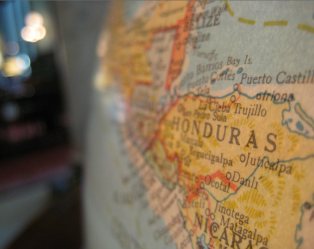In 2009, after a military coup and subsequent political crisis in Honduras, foreign aid to the country decreased substantially. The United States suspended $20 million in non-humanitarian aid a week after President Zelaya was ousted from office. The Millennium Challenge Corporation followed suit, cutting $11 million to its programs in Honduras.
A year later, President Porfirio Lobo was sworn into office, and US Secretary of State Hillary Clinton “certified that democratic governance had been restored in the country”. Following these events, the Honduran government embarked on a long process of rebuilding relationships with foreign donors and its own population. In 2013, the MCC approved $15.6 million in aid to the country. These fluctuations in aid have severely affected Honduran development. As a result, the government is looking for ways to better monitor aid within the country.

During this rehabilitation process, the Honduran government developed the Plataforma de Gestión de la Cooperación (PGC)in 2011, which makes data about development projects transparent and publicly accessible in an online tool. The PGC tracks the financial and programmatic information of over a thousand development projects. This year, in partnership with USAID’s Higher Education Solutions Network, AidData is supporting the Ministry of Foreign Affairs within the Government of Honduras to geocode all foreign aid projects tracked by the PGC. In March 2014, AidData team members visited Honduras to help kick off the geocoding operation, meeting with government and development partners to lay groundwork for the coming months of data collection. Geocoding - applying precise location information to development projects – will add another element to the PGC already started by the government.
The launch of geocoding work reflects both a new development community and a more transparent government working to create better access to development information. This platform is imperative in order to improve aid planning in Honduras and prevents the duplication of efforts in the same geographical areas.
Honduras has an encouraging context for collecting aid information. It is a country where development partners have been cooperative with the Ministry of Foreign Affairs since the launch of the PGC. From the beginning of the kickoff mission the Embassy of Japan, Spanish Agency for International Development Cooperation, the Andalusian Agency for International Development Cooperation and the World Bank have already started sharing information on the location of their projects.
Check back with us for updates and lessons learned as geocoding work progresses in Honduras and beyond.
